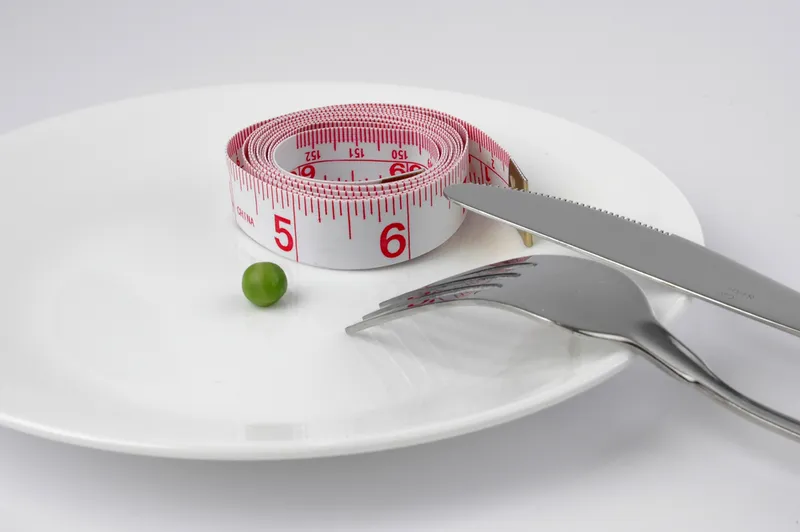The one weight loss mistake everyone makes and how you can avoid it
Blood sugar, insulin, cortisol, progesterone, estrogen, testosterone, and thyroid hormones are all interlinked. Over training and excessively restrictive diets aimed at losing weight can add further stress, increase cortisol, and bring down this house of cards.
When it comes to losing weight, there might be several factors that get in your way. The common thinking being the path to weight loss is to consume less calories, exercise more, and even add weight-reducing super foods.
The truth is that the weight loss mistake that everyone makes does not lie in any of those, but within the communication network of your hormones.
Your hormones are an intricate communication network that call the shots in many things, including metabolism, mood, energy, homoeostasis, and much more. The biggest weight loss mistake that you can make is to not focus on your hormones.

Source: Shutterstock
What are hormones?
Hormones are chemical messengers within your body. They speak to each other, to cells, and control or regulate systems, functions, and practically everything that happens within.
Imagine a network of people in sync with each other and how beautifully an organisation under them can run. On the other hand, think of a network of volatile and unsettling people and imagine how an organisation under them might run! Your hormones behave beautifully and synergistically if there are certain things in place.
The main hormones that you must be aware of within your body, which are interlinked and connected to weight loss overall are insulin, cortisol, estrogen, progesterone, testosterone, and thyroid hormones.

Source: Shutterstock
The hormone-weight link
What are the hormones that are linked together and how do they impact your ability to lose weight?
It all begins with a hormone called cortisol that is released by your adrenal gland under stress. Constant release of cortisol from frequent stress triggers a cascade of unsettling impact on other endocrine systems, all of which prevent weight loss. When cortisol is elevated, it can upset your ability to balance electrolytes, including sodium and potassium, which can add to fluid retention, bloating, and water weight. It can also impact your ability to have quality sleep and sleep is so key to weight loss!
When adrenal function is imbalanced with these fluctuations in cortisol then it creates severe imbalance in sex hormones, including estrogen, progesterone, and testosterone. Estrogen dominance can be found even in men! Carrying excess weight in your thighs and hips can all be signs of it. And guess what? If you over train with squats trying to lose the heavy hips, you can actually create more stress, higher cortisol, and fall into a loop.
There is so much more to this, but blood sugar, insulin, cortisol, progesterone, estrogen, testosterone, and thyroid hormones are all interlinked. Over training and excessively restrictive diets aimed at losing weight can add further stress, increase cortisol, and bring down this house of cards.

Source: Shutterstock
Where must you begin?
As delicate this house of cards really is, the good thing is that making a positive difference in one area can help all the other areas get better as well. It all begins with you finding the best way to stabilise cortisol. You can do this by not stressing yourself in any way. This includes stress of every kind.
You can create physiological stress from fad diets, over training, nutrient deficiencies, inflammation, liver congestion, excessive MF exposure, poor sleep, and external stressors.
The adrenal glands require optimal protein for you to feel stable and grounded. Making sure that every meal has ample protein is critical. There is a world of difference between adequate and optimal protein. Truly you need a minimum of a gram per kilogram of body weight. Some may need even more.

Source: Shutterstock
This means that someone weighing an average of 6o kg would need 60 grams of protein in a day, most of which should be at the first and second meal of the day.
It’s great for satiety so you will eat less of starches and sugars. It also is the base for blood sugar balance, which when improved will promote better insulin sensitivity, cortisol regulation, and therefore help you to lose weight!
When you restore stable blood sugar balance, then your adrenal function is maintained. Balanced cortisol helps with balanced sex hormones and thyroid hormones. All of this helps you to lose weight slowly but surely.
You might think that you have optimal blood sugar regulation, but you will be surprised how many people actually have poor blood sugar regulation, even when they seem to be eating very healthy. Typically, this has to do with liver health, levels of stress, quality of sleep, composition of meals, protein intake and form of exercise.
If you want to lose weight, don’t forget this intricate web of hormones. Just overtraining and calorie restriction will not work.
For sustainable long term healthy weight reduction, hormones need to feel happy with themselves, so that they can speak to each other calmly and promote a system that is in perfect homeostasis.
Edited by Teja Lele









